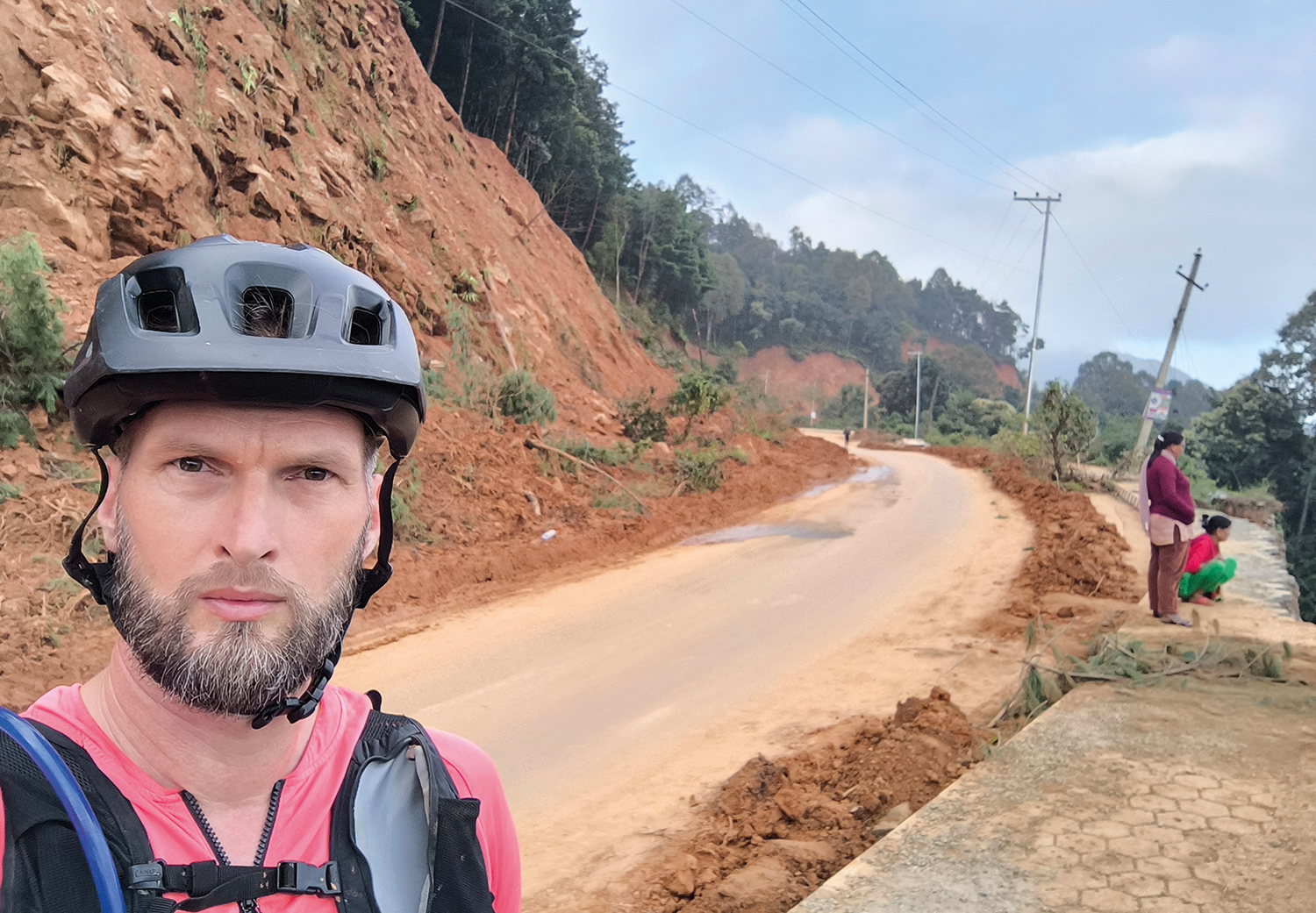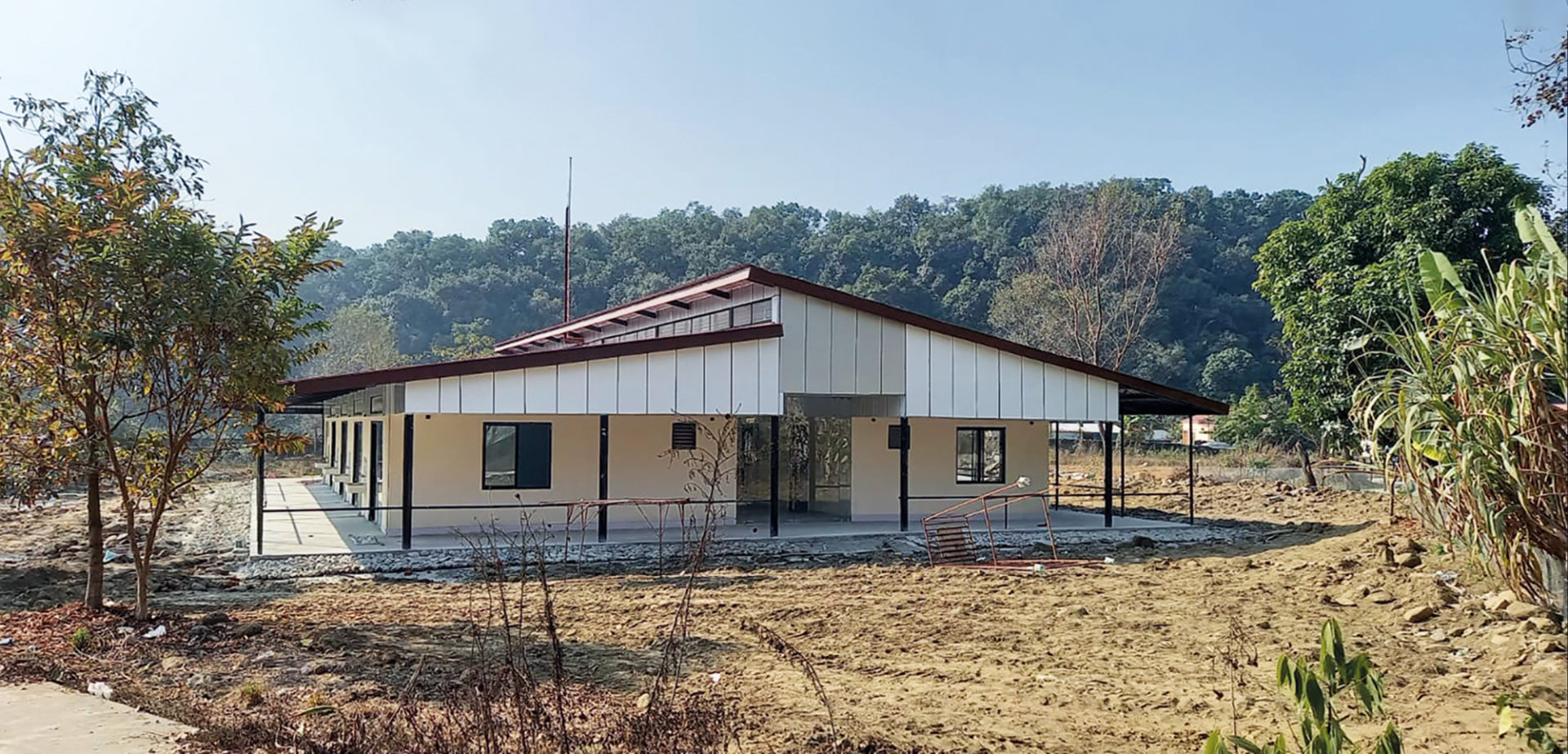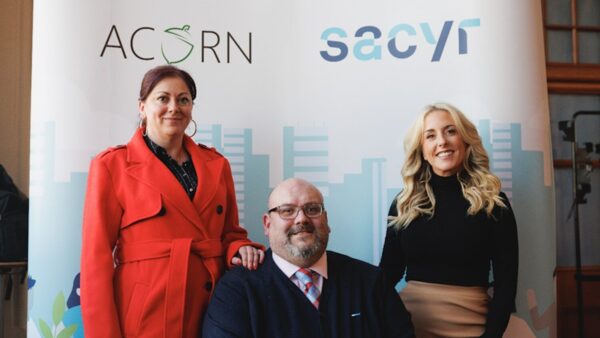
Tobias Vokuhl MCIOB is preparing to manage the construction of schools and safe houses for young survivors of human trafficking in Kathmandu, Nepal. Rod Sweet reports.
Last year saw the opening of a 30-bed leprosy treatment centre in Nepal’s second city, Pokhara, designed and project managed by Tobias Vokuhl MCIOB.
The non-governmental organisations (NGOs) he’s worked for jumped at the chance to deploy his construction management expertise. He in turn is keen to introduce international best practice to Nepal’s construction industry. It’s one of Asia’s poorest and most rural countries, but it’s urbanising rapidly, especially in the Kathmandu Valley where the capital sits.
Health and safety, adequate design and effective project management are sorely needed. But he’s learned that you can’t impose external standards on a culture that is unprepared for them. He’s not giving up, though, and thinks CIOB could help.
How he got there
Vokuhl completed a carpentry apprenticeship in his native Germany at 18, and later gained a master’s in construction project management from Oxford Brookes University. He worked for several years as contracts manager with Beard Construction, managing projects in the £5m range.
He and his wife became increasingly aware of global needs and, in 2017, when their three children had reached primary school age, the family moved to Nepal, which had invited international help in rebuilding after a devastating 2015 earthquake that destroyed or damaged 800,000 homes.
Vokuhl was seconded to a Nepalese NGO, the International Nepal Fellowship (INF), which works in public health and community development, and runs three hospitals. Vokuhl helped with project management training, project delivery and, more recently, masterplanning and helping the leadership to strategically develop INF sites.

“I think they were quite keen to have me,” he chuckles. “There were plenty of opportunities to throw certain tools and methods at the local context, and also to realise what works and doesn’t work there.”
Commitment to Nepal
The initial secondment was for 18 months, but the Vokuhl family are still there, spending 10 months a year in Nepal and two in the UK.
He’s been put to good use. March last year saw the opening of the Eileen and Betty Centre, the 30-bed leprosy ward at INF’s Green Pastures Hospital in Pokhara.
“It certainly was something I never thought as a contracts manager I’d be doing: given a clean sheet of paper and told, please go away and use your knowledge and understanding and draw on locally available models and come up with the best solution for us. It was amazing.
“It’s wonderful to think there’s a building in Pokhara now that for years will hopefully render a good service.”
He’s currently working for a Nepalese NGO that helps survivors of human trafficking. With funds from Canadian charity Ally Global Foundation, the NGO is building seven safe houses in Kathmandu, a school, a vocational training centre and other buildings. The NGO has 150 minors in safe houses, but wants to own the new houses because renting puts the survivors at risk. When we spoke, the project was in the detailed design phase.
Safety challenges
In this project as others, he’s feeling his way with introducing best practice. “It’s been a long learning experience – nearly seven years.”
The Nepalese building code stipulates that contractors and clients must ensure an element of worker wellbeing, but it lacks specifics.
“It’s there in principle and I’ve had to test the waters as to what can I actually push the contractor to do,” says Vokuhl. “Initially, I’d started with hard hats, high-visibility vests, safety boots, risk assessments and method statements.

“But after a while you realise the industry just doesn’t do risk assessments and method statements. And I had to accept I can’t force labourers to wear safety boots. They’ve been working in flip-flops all their lives. So in that instance I said look, we’re going to protect heads. If you have a foot injury, it is what it is, but we’re going to stick with the hard hats.”
Now he’s thinking laterally about how to encourage change. He’s tried giving contractors some training and encouraging them to pass the learning down. He’s thinking about what incentives might work.
CIOB involvement
Vokuhl also thinks CIOB could have a role; its Professional Development Programme (PDP) could be relevant for Nepalese graduates, he believes.
“My hope really is with young Nepalis who’ve just come out of university,” he says. “Their openness to the world and willingness to learn, and also often the need to work in other countries such as in the Middle East – I think that’s the point at which you can engage with people and say, look, I’m not just making up this stuff, it’s actually internationally accepted good practice, so if you engage with this you may have career benefits.
“I’m talking to the funders on my current project to see if we could put a few people through the CIOB PDP, because then we’ve got common reference points in terms of what we’re trying to push.”
Comments
Comments are closed.










I think this is exceptionally worthwhile and will help to promote standards and the work of the CIOB. My wife left Nepal just two weeks before the earthquake and was able to help by sending much needed money to our sherpa who had lost his home. The more the CIOB can help this financially poor but water rich country is to be applauded.
Hi, how do I become involved in this? I am a Project manager in construction. I trekked to the Himalayas and base camp in 2015 just after the earthquake and fell in love with the country and would love to help out.